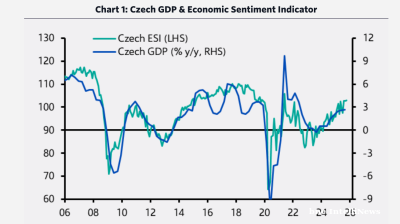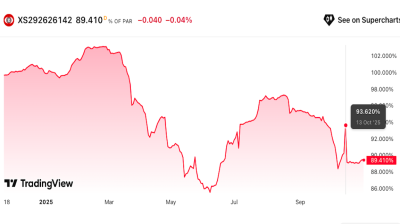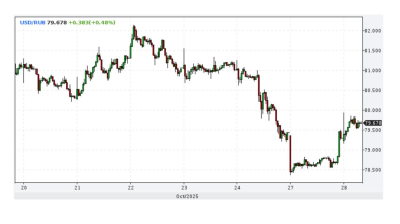Romanian households saw their purchasing power shrink in July as inflation outpaced wage growth, according to data from the National Institute of Statistics (INS) announced. The average net wage (chart) fell 3% m/m compared with June and 2.4% y/y to RON5,517 (€1,088), despite posting a nominal increase of 5.2% from July 2024 — the weakest annual advance in four years.
Consumer prices rose 7.68% y/y as of July (+5.45% y/y in June), fuelled by the electricity price liberalisation, and it further advanced to 9.85% y/y in August, driven by higher VAT rates and excise duties. Wage readings will consequently further deteriorate in August.
The National Prognosis Commission (CNP) expects average wages to lag behind inflation through 2025 and 2026, leading to a further erosion of real incomes by 0.4% this year and 0.3% next year. The government’s decision to freeze public sector wages and pensions for two years is also expected to weigh on household consumption, while weak private sector dynamics will limit compensation gains.
Over the past five years, the real wages in Romania have increased moderately and particularly in 2023 and 2024. But the local currency's strengthening had an impact on the demand for imported goods and tourism services. While the wages, as of July, are 15% above the 2019 average in real terms, they were 67% higher when expressed in euros.
In July, employees in the three largest public sectors — administration, education and health — recorded steep declines in real incomes, with annual drops of 7.5%, 7% and 5% respectively. Wages in administration and education were flat compared with July 2024, while health sector earnings rose 5.1%, most likely driven by private medical providers.
By contrast, some areas of manufacturing outpaced inflation. Average wages in the sector rose 8.7% y/y, translating into a modest 0.7% y/y real increase. Strongest growth was reported in transport equipment manufacturing, where salaries rose 12% to 13% in annual nominal terms, generating real gains of 4% to 5%. Paper product manufacturing also posted notable growth of 14.4% y/y nominally and 6% in real terms.
Other sectors were less resilient. Pay increases in construction, IT, and hospitality failed to keep up with headline inflation, leaving workers worse off in real terms. Financial services saw the steepest gains, with average net wages climbing 28.5% y/y to RON7,340 (€1,448), equating to a 19.1% real increase.
While some industries continue to deliver above-average wage growth, double-digit inflation over 2025–2026 is likely to weigh heavily on employees and pensioners, increasing the risk of broader social pressures.
Data

Czech growth accelerates as domestic demand-side pressure builds
The Czech economy delivered an unexpected acceleration in the third quarter, marking a clear shift from its earlier position as a regional underperformer to one of Central and Eastern Europe’s fastest-growing economies.

Eurobonds of Istanbul-listed Zorlu units offer attractive yields amid rating downgrades and no default expectation
Debut paper currently offering 14-15% yield.

Ruble strengthens as sanctioned oil companies repatriate cash
The Russian ruble strengthened after the Trump administration imposed oil sanctions on Russia’s leading oil companies, extending a rally that began after the Biden administration imposed oil sanctions on Russia in January.

Russia's central bank cuts rates by 50bp to 16.5%
The Central Bank of Russia (CBR) cut rates by 50bp on October 24 to 16.5% in an effort to boost flagging growth despite fears of a revival of inflationary pressure due to an upcoming two percentage point hike in the planned VAT rates.




